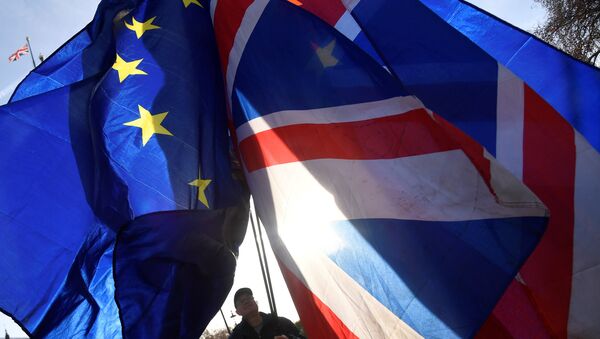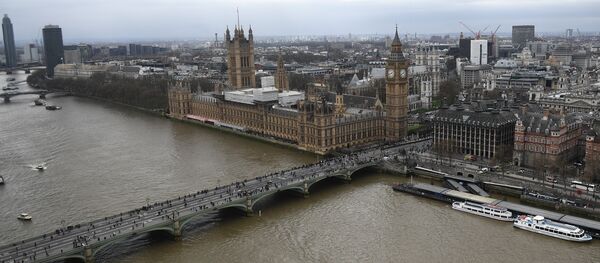Sputnik: The meaningful vote debate has started once again, but if nothing has changed how meaningful is the debate?
Dr Connal Parr: I think that there's absolutely no change in the prospect these debates are going to lead to anything other than a defeat for the bill. The deal which Theresa May has negotiated over the last number of months being defeated, there's no other alternatives and then the belief is that this is going to be defeated in various forms by a substantial majority in the House of Commons.
Dr Connal Parr: My evidence for what I'm about to state I think is going to happen derives from a meeting which took place yesterday in Dublin. In Ireland, the Irish capital between the German Foreign Minister: Heiko Maas, and the Irish Prime Minister: Simon Coveney. In which Coveney suggested that Ireland would not stand in the way if Britain wanted to extend, the period of Article 50.
So in other words, if there will be given more time to prevent the possibility of Britain crashing out with no deal. So that seemed to suggest that if the Irish Government was willing to not hamper that process, not stand in the way of that, then that therefore gives Theresa May and the British government more time to get, kind of, written assurances that the 'BackStop' is not going to be essentially the UK won't be trapped into the backstop. Which is the clause, guaranteeing that there will not be a hard border on island of Ireland.
And that, therefore, would suggest that the next thing that's going to happen is more time, article 50 is extended. And there are other possibilities, of course, Possibility of a referendum and a second referendum. I think the general election it's very unlikely as those options but that is also on the table.
READ MORE: Tory MPs Deride Speaker for 'Anti-Brexit' Bias With Wife's Bumper Sticker
Sputnik: We've seen an increase in reports of protesting in the street, do you think this civil unrest could spread if Brexit is delayed?
I'm afraid that as it looks more likely that some kind of referendum could be on the horizon or that more generally, I think that Brexit is being frustrated, this kind of thing will continue.
I know for instance, that the Labour Party in the UK, the British Labour Party, is very concerned about this prospect. Which is one of the reasons why much to the annoyance of probably EU minded people that the Labour Party is committed to some form of Brexit. So they are, you know, they're essentially trying to guarantee that some kind of form of Brexit happens so as to prevent this kind of right-wing, possibly violent, backlash occurring in the UK. And that comes from somewhere very real and strategic on their part.
READ MORE: 70% of UK Parliamentarians Believe May Did Poor Job of Negotiating Brexit — Poll
Sputnik: What lessons can we learn from the past about how to deal?
And I also think that more generally, the use of the past is important because some of the Brexit spirit unquestionably comes from a kind of nostalgia for Empire and for British dominance in the world. And you often find this in the way that journalists and leaders are writing about this in The Times. Even in quite, quite respectable newspapers they refer to "we used to manage the world", "we used to manage you know, a quarter of the world surface" or "we used to manage a large Empire, we will be able to manage ourselves and we are a Great Country" and part of Brexit really I think is the outworkings of Britain signing itself by row post-imperial roles still which is still working through and wrestling with and obviously the past is very connected to that.

The views expressed in this article are those of the speaker and do not necessarily reflect those of Sputnik.




